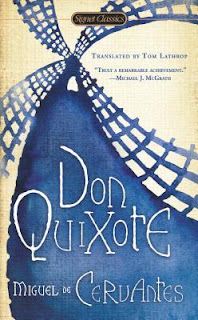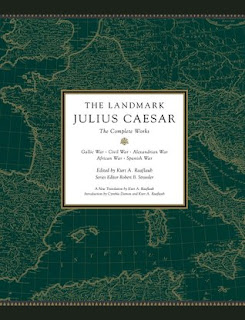
Lancelot
“Can good come from evil? Have you ever considered the possibility that one might undertake a search not for God but for evil? You people may have been on the wrong track all these years with all that talk about God and signs of his existence, the order and beauty of the universe--that's all washed up and you know it. The more we know about the beauty and order of the universe, the less God has to do with it. I mean, who cares about such things as the Great Watchmaker? - Walker Percy
Following the example of Camus' novel, The Fall, Walker Percy styled his fourth novel as a confessional with Lancelot Andrewes Lamar, a disenchanted liberal lawyer, as the titular confessor. Lancelot is packed with philosophical and theological questions, questions debated in his essay collection Message in the Bottle (1975). Lancelot, like Percy's previous protagonists, has lost himself to everydayness, sex, consumerism, newspapers, and television. He is jolted out of his alienation only by catastrophe: his wife has been unfaithful—his daughter is not his. Percy, a Christian novelist, uses violence, shock, and the bizarre as a catalyst to promote a self-directed search. Lancelot, like the characters in Percy’s earlier novels, undertakes the search only after catastrophe occurs.
Through a series of fragmented flashbacks, Lancelot, failed lawyer, ex-grid star, Rhodes scholar, and madman, travels through his memory in an attempt to discover what went wrong. He relives the past, while rambling in a monologue to a silent priest who acts as a sounding board.
The search begins, as in Percy’s earlier novels, by confronting the haunted past, because only by understanding the past can Lance contemplate the future. In doing so he must, as Percy has suggested in his philosophical essays, “stand in front of the house of his childhood in order to recover himself.” Once there Lance discovers his father was a crook. He must then not only become aware of sin, of evil, but he must also see it and experience it. What he sees is his wife committing adultery, his daughter participating in an orgy, and his son admitting his homosexuality. The issue is twofold: first Lancelot must see his wife’s unfaithfulness; then in his quest for sin, he must experience evil—he must kill. While searching for evil, he discovers that “sexual sin was the unholy grail I sought.” Because his wife’s unfaithfulness jolts him out of his ordinary existence, he questions whether “good can come from evil,” and he undertakes a search “not for God but for evil.” “Dishonor,” Lancelot learns in this first-person narration, “is sweeter and more mysterious than honor. It holds a secret,” and he is determined to discover the secret.
So, the protagonist experiences evil and discovers despair. But for Percy, as with Kierkegaard, despair is a stage toward hope. Lancelot despairs of the modern world, “The great whoredom and fagdom of America.” But he visualizes a new life, a new order of things; “there will be a tight-lipped courtesy between men. And chivalry toward women. Women must be saved from the whoredom they have chosen.” His new life, as he visualizes it, involves a retreat to “a cabin and a barn and fifty acres in the Blue Ridge not far from Lexington, Virginia.” Joining him, he assumes, will be Anna, a victim of gang rape, who along with Lance is a patient in the institute. Lance links his future to Anna’s.
Percy, termed a stylist by many, has progressed in his style; the monologue device spans the novel. Yet he takes this novel one step further than Love in the Ruins, where the main character awaits the end of the world. Here Lancelot ends the modern world for himself and plans to start a new one. Again, as in his earlier novels, Percy reverses the traditional ways of making do in the modern world. Average happiness is conceived as despair, sin is better than indifference, forgetting better than remembering, wonder better than certainty, tragedy better than an ordinary day, and madness better than sanity.
The new novel, with Lancelot rambling to a priest in confessional fashion, breaks from Percy’s previous style. The monologue, which pretends to be a dialogue is broken at the novel’s conclusion when the priest answers “yes” to Lance’s newfound understanding and ability to change, to heal his broken self, as Percy has all his characters do at the conclusions of his novels. Percy, a Catholic, always incorporates religion into his novels, and Percival, the priest-psychiatrist, echoes Father Rinaldo Smith and Kev Kevin of Love in the Ruins.
The protagonists in Percy’s four novels all seek alternatives to their present alienated existence, alternatives which will enable them to function in a fragmented and empirically oriented society. Consequently, the fragmented self exemplified by Binx of The Moviegoer, Will of The Last Gentleman, Dr. More of Love in the Ruins, and Lance in this novel is reunified in varying degrees by the novels’ ends. Other similarities also exist between Lancelot and Percy’s previous novels. Binx is a moviegoer in that novel; Lancelot is a television watcher, while Margot is an actress with a company filming a movie in Belle Isle. Lancelot realizes, as Binx eventually did, “that the movie folk were trafficking in illusions in a real world, but the real world thought that its reality could only be found in illusions.” Percy also repeats his intrigue with catastrophe as a means of “rendering the broken self whole” in Lancelot. Binx in The Moviegoer, Sutter Vaught in The Last Gentleman, and Dr. More in Love in the Ruins realize that “only in times of illness or disaster or death are people real.”
Although Percy continues to pose philosophical questions in Lancelot—can good come out of evil, does tragedy heighten reality, how is one to live in the modern world—he has not progressed in developing new characters and ideas. They all echo and re-echo his last three novels as well as his philosophical essays. Lancelot continues a progression in Percy’s writing, for Lance, like the other protagonists, undertakes a search—in this case, a search for evil. He begins a new world for himself by personally and symbolically trying to destroy the modern world, by understanding evil through his participation in it.
The fragmented digressions of Lance’s mind are the vehicle Percy uses to convey his philosophy. I found myself getting bogged down in the author’s philosophical gymnastics over questions of the significance of the past, the question of good and evil, and the alienation and fragmentation of modern man. This made the novel seem a bit more tedious than its predecessors. This may be because he moved beyond his earlier approach to life as a journey and portrayed this narrative in confessional form. His use of this form seemed insufficient and led to a feeling that the protagonist, Lancelot Lamar was ranting at times.





























